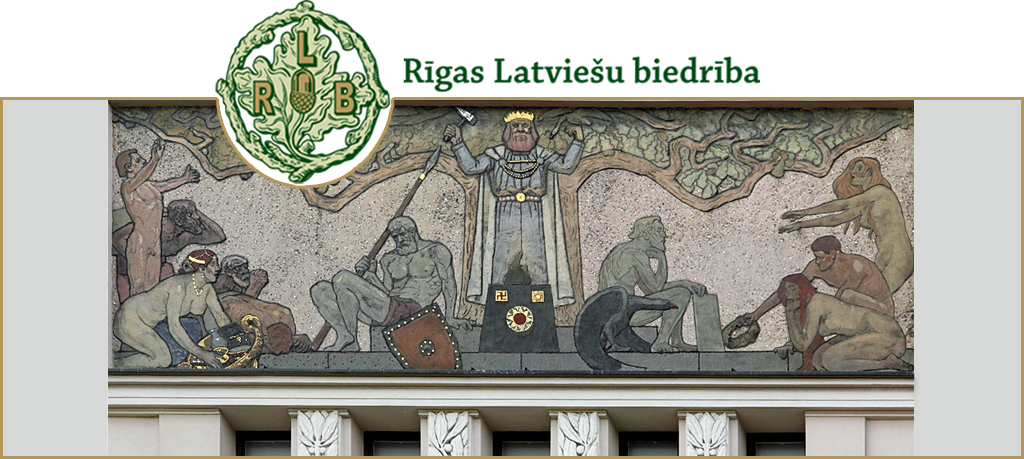
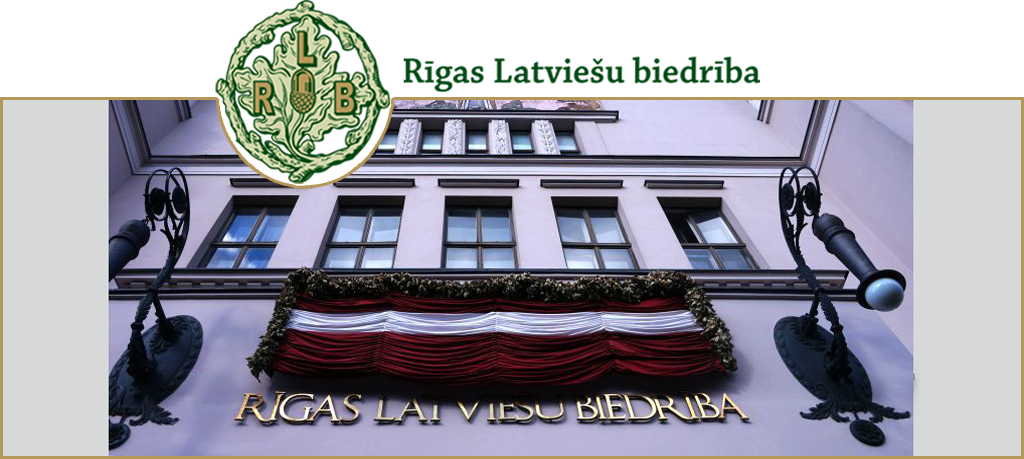
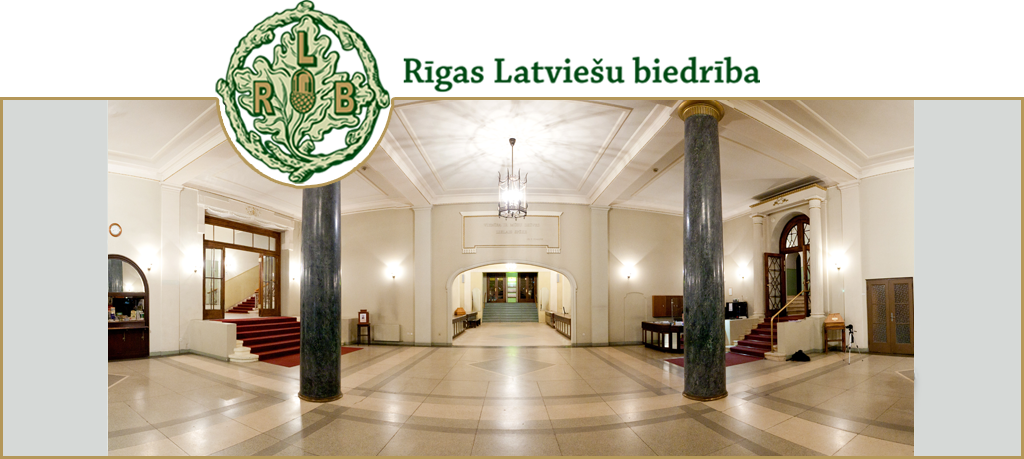
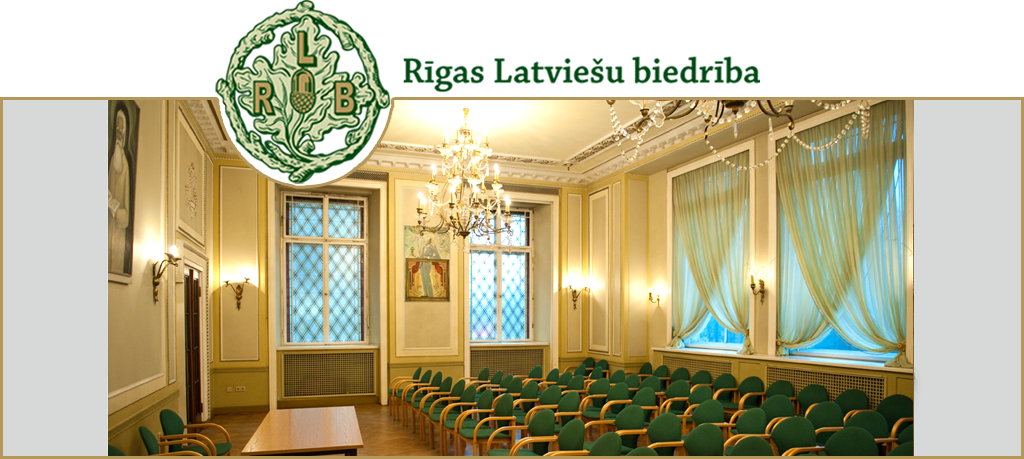
Sending in of years Word, Unword and Winged Saying will continue until January 26
26.01.2015
Last day, when everyone will be able to send in the examples of the years 2014 Word, Unword and the Winged saying is January 26, 2015. This inquiry for already 12 years have been organising the RLS Latvian Language Advancement Group (LVAK) in cooperation with Latvian Writers Union and Latvian Academy of Science Terminology Commission. The organisers announced the inquiry on January 12 and during one week almost 300 suggestions have been received fifty years Words, approx. 60 years Winged Sayings and 140 Unwords. More than 20 sent suggestions could be named as the years verbiage (the most incoherent arrangements of words that have been found in serious texts or heard in 2014).
Novelty of this year the Riga Latvian Society (organisation, where since 2001 the Latvian language Advancement Group has been working) has decided to give its special promotional gift reproduction of artists canvas that will be given to the best sender of the years Latvian word or Winged Saying.
In the first part of the 20th century, also during the World War II rather actively worked Language Section at the Riga Latvian Society, whose meetings managed well known in the world Balts philologist Jānis Endzelīns. His references to mistakes, suggestions for Latvian words and better sentence constructions that are summarized during J.Endzelīns working time are still available and useful for language practicians.
The RLS Latvian Language Advancement Group suggested in 2003 to survey the society at the end of each year and, based on the suggestions sent by people and evaluation of language practicians and theoreticians, to name the years Word, Unword and Winged Saying.
Years Word brighter and the most exact word made taking into account Latvian Language rules that has appeared from the first time, has gained popularity or regained it or has been used with a new or special meaning characteristic for the current year.
Years Unword brighter from the most absurdly made or unnecessary borrowed words that have appeared from the first time or have notedly spread or have been made from already known words that have been widely used in the current year in impertinent or unnecessary changed meaning (for example, taking into account other languages models).
Years Winged Saying brighter or most strange from sayings that have been often used or have been especially noticed in the society in the current year. Winged Sayings of previous years remind of that time political and social topicalities, for example: 2004 Valsts deg zilās ugunīs (Country burns in blue flames), 2005 Vanags noknāba cālīti (A hawk pecked to death a chick), 2006 Paņēma un uzmeta (Took and deceived), 2007 Bojāts horizontālais taimkods (Damaged horizontal time code), 2008 Pārāk liela cilvēcība sabiedrībai nav saprotama (Too big humanity is not understandable for the society), 2009 Un ko jūs saprotat ar polītisku atbildību? (And what do you understand with a term political responsibility?), 2010 Krāniem un buldozeriem jāstrādā lidostā (Cranes and bulldozers should work in an airport), 2011 Rīkojums Nr. 2″ (Order Nr. 2), 2012 Vilks paziņoja, ka Lapsas sūdzība par Zaķa pārkāpumu tiks izskatīta (Wolf announced that Foxes complaint about Hare would be considered).
Years Words from 2003 till 2013 were: 2003 zīmols (brand), 2004 mēstule (spam), 2005 smacenis (smog), 2006 draugoties (make friends through internet portal www.draugiem.lv - in English - for friends), 2007 ēnstrādnieks (illegally employed person), 2008 talkot (to participate in the big clean), 2009 glābējsilīte (baby box), 2010 zibakcija (flesh mob), 2011 staidzināt (to take, for example, a dog for a walk), 2012 ziemotne (birds wintering places) as well as pašbilde (selfie) slang word.
Unneceessary foreign words, if their have more Latvian substitute, barbarisms, unnecessary insrtieons and words that are not declinable or forbid in other ways to understand meaning easily, have become the titled Unwords of previous years - 2003 eiro (euro), 2004 māsterplāns (master plan), 2005 centrs (centre), 2006 hendlings (handling), 2007 siera produkts (cheese product), 2008 šis te
šo te
(this one
that one
), 2009 saīsināt (darbiniekus) (reduce (employers)), 2010 pa lielam (generally), 2011 konsolidēt (consolidate), 2012 uzrunāt (problēmu) (address (a problem)), "dīlot, dīlošana, dīls" (deal, dealing).
Suggestions should be sent until January 26, to e-mail: gadavards@inbox.lv or mailing address: RLB Latviešu valodas attīstības kopai, Merķeļa ielā 13, Rīgā, LV-1050.
The inquiry will finish with the press conference on February 2, at 11:00 in the Riga Latvian Society House jury members and the RLS representatives will announce the results and will tell what the inquiry shows about current Latvian language phenomena.
Results of previous inquiries http://LVAK.wordpress.com/gada-vards-nevards-teiciens/ Topicalities, neologisms, terms and discussions - https://Twitter.com/LVAK_valoda
More information:
Ieva Kolmane (years 2014 inquiry contact person, coordinator), phone 29420386, ieva.kolmane@gmail.com
Information prepared LVAK representative Valters Feists
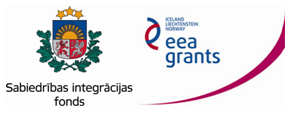
www.sif.lv
www.eeagrants.lv
www.eeagrants.org
Project is financially supported by Iceland, Liechtenstein and Norway.
This publication has been made with European Economic Area’s Financial Mechanism’s and State of Latvia financial support.
The Riga Latvian Society is responsible for the content of the publication.